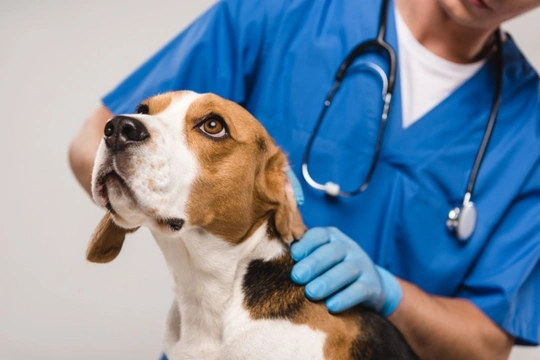
How is coronavirus affecting veterinary care? What will be different whilst Covid 19 is still a thre
Coronavirus and the ongoing spread of Covid 19 is having an impact on every aspect of our lives, from how easy or otherwise it is to find basic essentials in the shops to whether or not we choose to avoid other people entirely.
No business or service is escaping the impact of this either, and naturally many non-essential businesses have chosen to close indefinitely to protect their staff and customers, and avoid contributing to the spread of the condition.
However, this isn’t possible for all businesses, particularly those providing essential services or that have a duty of care to their patients; whether those patients are human or animal.
Coronavirus (Covid 19) is a human condition, and while there is a type of coronavirus dogs can catch (there are many different types of coronavirus and few can cross the species divide) people can’t catch canine coronavirus, and dogs can’t catch the human version. However, Covid 19 is nonetheless having an effect on veterinary clinics due to the logistics and risk factors for people involved in providing veterinary care, and their customers.
This means that how you will be able to get veterinary help for your dog whilst coronavirus is spreading and having a large impact on the UK infrastructure will be quite different to how things normally work.
This article will outline some of the key ways in which human coronavirus is affecting veterinary care, and some of the things you might find to be the case in your local veterinary clinic as a result of the coronavirus threat. Read on to learn more.
You may not see your usual vet
Many dog owners like to see the same vert for every appointment, and if your dog has an ongoing health condition, or has a condition or incident being managed on even a short-term basis, this makes sense and clinics work hard to ensure consistency of care.
However, this may not be possible whilst the coronavirus outbreak is acute; staff coverage at clinics might be highly variable as some staff may become sick and/or need to self-isolate, or even help to provide coverage at other clinics and in other roles in support of ensuring a consistent service provision for every pet that needs it.
You may be directed on doing things at home
Some things that you normally visit the clinic for might be achievable at home, and where this is at all possible, your vet might try to help you to avoid making visits to the clinic.
For instance, if your dog takes part in weight management clinics, you might be instructed to weigh them at home and phone up to discuss any changes, rather than attending in person.
There are of course only a limited number of things that owners can do for themselves or that vets can oversee remotely, and the usual protocols and practices will still apply; for instance, if you call up and say your dog has an infection, your vet will need to see them and won’t be able to take your word for this and guess at the right treatment and prescribe it without diagnosing it themselves.
You might have to go to another clinic
Clinics that are parts of groups or chains are more likely than your local standalone clinic to alter their working practices in the name of providing the most comprehensive care throughout the coronavirus crisis.
Some such groups and chains will close some of their smaller clinics and serve customers from their largest, main, or 24 hour clinic, which enables them to stand the best possible chances of keeping it staffed despite potential staff sickness, and limit travel and exposure that may otherwise be required by transit between clinics.
Also, both chains and independent clinics might be impacted by staff absence that makes them unable to open at all at points; and for this reason too when you call your own clinic, you might be directed to another one instead. This may not be ideal, but such decisions are not made lightly or for no good reason, and arguing about this won’t change anything and will just take up valuable time.
A reduced hours service might be offered
Some clinics might offer reduced or different opening hours from normal; once more, this may reflect the availability of staff coverage or might be logistical to avoid having to have staff and customers travel at peak times; or, to ensure that the car park isn’t too congested with lots of people attending for consults in a short space of time.
This latter may be important, as lots of clinics are asking clients to wait in their cars to be called through individually, to reduce their exposure to each other in the waiting room.
Ultimately, veterinary clinics have a lot to think about when it comes to maintaining care for their patients, keeping their staff and the public safe, doing their part to reduce and slow the spread of coronavirus, and providing their vital services; so be prepared for some changes.
Remember that veterinary staff are doing their best under very difficult circumstances, and try not to make their lives harder; whilst not all of the changes will be convenient for you, they are made with the best interests of public health and that of the animals the clinic cares for in mind.



